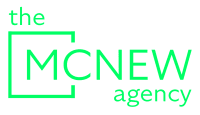You’re savvy enough to know you’ve got to start marketing your small business online.
The internet is where modern business takes place, even for companies that need face-to-face contact to deliver.
For many small businesses, however, getting their online marketing started might be a little confusing.
There are tons of possible routes, making it difficult to know what you should spend your time on first.
But if your goal is to grow your business and outpace your competition, you’ve got to learn it.
In this article, I’m going to break down the different spaces you need to market your small business online.
I’m also going to clue you into what you need to focus on with those platforms.
Strap in. We’ve got a lot to cover.
Online Marketing Can Be Exhausting For Small Business
There’s a lot to keep up with when marketing your small business online.
With so many marketing channels available it can take a lot of work to make it all work.
If you’re not sure what to do or how to do it, you can burn yourself out quickly.
As you jump into DIY marketing, you’ve got to know what to prioritize so you’re not wasting time and effort.
Unfortunately, when most small businesses jump into online marketing, they don’t have a clue.
They spread themselves too thin, they don’t learn the strengths of the channels, and they focus on selling instead of communicating.
Because their lack of understanding creates limited, poor results, they get frustrated.
Moreover, they damage their efforts on the channels they tap into.
Don't damage your online reputation through ignorance. Share on XIt’s not entirely their fault, though.
There isn’t a lot of great information about how to get your small business’ online marketing started.
Unless, of course, you follow our content.
But even if you do, it can still be tough to figure out how to get started.
Sometimes you need to know the most basic steps.
That’s what we’re covering today.
Plan Out Your Small Business Online Marketing Strategy
If you’re going to market your small business online, you need a solid plan.
There are foundational elements that every small business needs to put in place for their online marketing to work.
When you know what they are, you create a plan for them.
That allows you to execute far more efficiently.
Because attempting to execute without a plan is usually a huge drain of both time and money.
But when you can move smoothly through the elements you need to include and in a well-organized path, you can maximize their impact.
These elements are the core components of any small business online marketing strategy.
Build Your Website
The first step when setting up your small business’ online marketing is to build your website.
This is the hub of your digital identity around which all of your other online marketing will occur.
You’ll be working to get visitors to it, bring leads through it, and use it to nurture your leads to the close.
It’s also a major component of your brand’s credibility.
Most people will check your website to see if you’re a real company.
Because your website is so important to your online marketing strategy, you need to address it first.
Start with the basics.
Register a domain that matches your brand.
In the best case, you’ll use your company name as your domain.
In the worst case, you’ll have to build it from the right keywords that you want ranked for.
From there, select the right platform to build it on.
Years ago I would have recommended a custom-coded website.
Now, however, CMS systems like WordPress make a much better foundation.
Make sure your site colors, content, layout, and style all match your brand.
Pay close attention to the ways you will present your brand through it.
You don’t want to do anything that’s going to confuse your audience.
Make your website fit your brand. Share on XSpeaking of confusing your audience, be sure you’re focusing on your website’s user experience.
The easier it is for your visitors to find the information they want, the more time they’ll spend on the site.
That means they’ll be more likely to become leads and, eventually, customers.
If you plan to build your website yourself, avoid services like Wix, GoDaddy Site Builder, and other “drag and drop” basic site builders.
They’re often semantically incorrect and can hurt your search rankings later.
If you’re not the type that can build it yourself, you may want to explore developers.
Find someone who can build more than just a website.
The right developer understands your business and knows how to present your company online.
You need to be certain that your finished website is futureproofed.
- It must be built to handle traffic growth.
- Adding new functionality down the line shouldn’t be difficult.
- You need a great CRM attached to it.
- Updating your site’s content should be simple to manage.
Once your website has all the right elements in play, you’ll be ready to expand your small business’ online marketing.
Plan Your Blog
In case you hadn’t realized, blog content is important.
It’s the single most critical part of your website’s role in marketing your small business online.
Without a blog, you’ll never get enough website traffic to make the expense worth it.
However, if you want your blog to work for you, you need to be prepared for it.
It’s time to plan out your blog.
Blogging can be a tough task for many small business owners.
It’s time-consuming, often taking 2-3 hours to research, plan, and write a great post.
You don’t want to take this job lightly.
A great blog article takes time. Share on XStart by sorting out your frequency.
How often are you going to produce a new piece of blog content?
You need to make sure you can hold to this consistently without sacrificing quality.
Ideally, you’ll publish a new article every day.
However, if that’s too much for you to handle, opt for a lower frequency.
Be sure you’re at least producing 1 new article a week.
That’s the minimum frequency to keep your traffic up.
Next, build a list of possible keywords and key phrases.
You’re going to use these and their variants as topics for your blog.
Focus on the questions your target market asks most often.
If you can provide answers to those questions, you’ll earn a higher quantity of qualified visitors to your site.
That equates to a higher quantity of qualified leads.
Before you publish your first blog, you ought to get 5 or 6 articles ready in advance.
This gives you plenty of lead time to get future articles together until you get in the swing of things.
When you begin blogging, it can be tough to remember everything you need to do to make great content.
By having extra articles ready to publish, you can absorb some of that time before it affects your blog’s consistency.
Once you have your articles stacked, you’ll be ready to share your best with your target audience.
As soon as your distribution channels are in place, you can start to publish.
Prepare Your Facebook Business Page
Every small business needs a Facebook business page as a part of its online marketing.
As the most populated social network, Facebook is far too big a crowd to ignore.
If your business isn’t here, it’s going to hurt your credibility and your content distribution.
Besides your website, people check Facebook to see if your business is active and real.
Make sure they find your business there, though, and not just you.
Many small business owners think they can use their personal profile to market their company online.
That’s a big mistake.
Even for realtors and insurance agents who work independently, a Facebook business page has distinct advantages.
- Unlike a personal page, there’s no limit to the number of fans.
- Business pages offer you data on the demographics of your audience.
- Posts can be sent to targeted audiences.
- The success of every post is measurable.
The additional data that a business page provides is huge.
Your Facebook business page is insanely important. Share on XBut if you’re going to get people to follow your business page, you’ve got to make sure the right information is in play.
Start with your profile picture.
Don’t use anything other than your logo to start.
Mascots and images tied to a marketing campaign should be saved for later after you’ve built the following.
When filling out the “about” section, include all the relevant information you can.
It’s most important to include contact information and, if you’re a brick and mortar, your store hours.
If you’ve got the creativity, you want to fill out the “Our Story” section.
This is your chance to make an emotional connection with your audience.
Let them know why you exist as a company and what your industry means to you.
Share the reasons why you went into your business.
Explain how much your clients matter to you.
Whatever you fill in, be certain it’s told in the form of a story rather than just a list of facts.
You’ll need to include a great cover image for your page, too.
That’s what’s going to show up when someone recommends you through a recommendation request.
Make it something relevant, yet eye-catching.
Like anything else, you’re trying to stop the scroll and get them to pay attention.
Get Your Personal LinkedIn Moving
If you consider yourself a professional – be it in a corporate position or as an entrepreneur – you need LinkedIn.
This platform is unlike any other when it comes to marketing your small business online.
It’s different because the focus is on you.
LinkedIn is networking for professionals who want to expand their influence.
Because that’s the focus, they don’t put a huge emphasis on business profiles.
If you publish content as your company, it likely won’t get seen.
I don’t advise trying to create a personal page for your business, either.
Those pages get treated as spam, which will ruin your reputation.
Instead, build your personal brand on the platform.
Share the content you publish for your business through the network.
Let your connections know that it’s your work and your area of expertise.
That’s going to prove that you are an industry leader with the kind of know-how they want.
LinkedIn is where young professionals belong. Share on XCreating LinkedIn content works a little differently, too.
You can’t post cat pictures, GIFs, or video games (unless you’re a video game manufacturer).
They’re not professional and don’t have the same clout they would on Facebook or Twitter.
Also, unlike most other social networks, hashtags don’t work.
As far as your profile itself goes, you need to focus on some important areas.
The most important is your title.
120 characters to describe what you do for a living.
It’s one of 3 things people see when they search profiles.
They see it above every post you share.
And of those three, it’s the only one that you can take creative freedom on.
Most people love their default title.
“Product Manager for A.C.M.E. Roadrunner Traps”
Unfortunately, a title like that doesn’t draw anyone’s attention.
Anyone except a salesperson.
Unless you love sales calls, you’re going to want to change that.
You also need to make sure your profile picture is professional yet reflective of your personality.
Make sure your audience can see your face clearly.
Be sure to fill out your relevant job history in full.
Some entrepreneurs are opposed to including their previous employers.
However, those entries are going to share your experience with the industry you’re in.
Think of it as an online resume.
Include a story in your summary.
Like your Facebook business page’s story, this should strike an emotional chord with your audience.
Don’t forget your portfolio items.
Some of your best content from across the web should be included.
It’s a perfect spot to showcase your knowledge in the field.
Done correctly, your LinkedIn will build your personal credibility and expand your influence.
Develop Your Lead Funnel
At this point, you ought to have a decent content plan.
But if your online small business marketing is going to create any leads for you, you need a way to gather them.
If it’s going to turn leads into customers, you need a way to nurture them.
You need to make sure your site has a lead funnel.
Preferably more than one.
Every campaign you intend to run should have its own path it guides your website visitors through.
It should have a point of entry, a nurturing process, and a conclusion.
There should be a unique lead funnel for every content campaign.
To be successful, you need to know what a lead funnel contains.
Every great lead funnel starts with the content.
Through your social media, you’ll draw attention to your blog, which earns you trust and familiarity from your audience.
Provide enough value and they’ll convert to leads.
Value is at the core of your lead funnel. Share on XThat’s going to start your email nurturing process.
You’ll send emails to your audience – likely automatically – to guide your audience to the next phase of the buying journey.
Those emails will expand on what you already shared with them and show them the ways your company can change their life.
If your lead funnel is designed properly, your site visitors will become leads and your leads will become customers repeatedly.
Your Small Business Online Marketing Plan Won’t Matter Without Execution
All the best-laid plans never matter if you do nothing with them.
You can create the best online marketing plan your small business has ever seen, but it will be useless if you leave it unused.
That means you need to put in work.
Take your newly developed strategy and create the kind of growth you’re looking for.
Start your small business’ online marketing as quickly as you can and catch up with the world.





